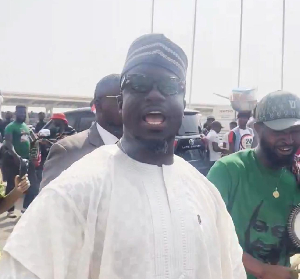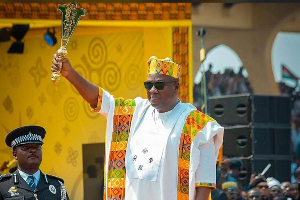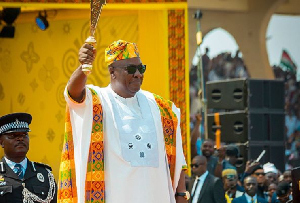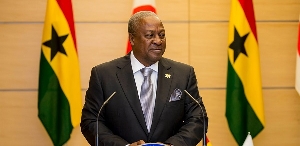Ghana Cocoa Board (COCOBOD) in partnership with Fairtrade Africa has held a two-day training workshop for some staff of the Research department on Fairtrade standards and sustainability.
The training workshop sought to enhance the capacity of the COCOBOD Research team to monitor and evaluate sustainability programmes in the cocoa industry to ensure value for money for its major stakeholders (i.e. Farmers and Government).
Speaking at the opening of the training seminar, Mr. Randolph Adei, the Director of Human Resource at COCOBOD indicated that training and moulding of human resource of organizations is key as it shapes and prepares staff to be effective and make systems work effectively and efficiently.
Mr. Abubakar Benjamin Afful, the Cocoa Programmes Team Leader together with Solomon McBanasam in charge of Protection and Advocacy from Fairtrade Africa facilitated the training.
The training highlighted on the principles of Fairtrade including democracy, transparency, accountability, non-discrimination and participation, which must be adhered by certified farmer cooperatives. The facilitators explained the Fairtrade system as well as the benefits that come with it including the payment of additional Fairtrade Premiums for the farmers who in turn dedicate some for developmental projects in their communities.
Fairtrade recognises issues of living income and wage as human rights issues that must be respected by stakeholders and actors of the various commodity value chains. Mr. Afful explained that Fairtrade certifies cocoa cooperatives and farmer associations rather than licensed buying companies.
This is because the ownership of the Fairtrade certificate should be held by the farmers to help deepen benefits to the farmers. To ensure compliance, FLOCERT; an independent body within the Fairtrade system is solely mandated to audit producers according to Fairtrade Standards.
Some other topics treated included: processes of Fairtrade certification, traceability, premium management, standards of social compliance, standard on internal management system and governance, and small producer organizations. The training also focused on responsible use of agro chemicals, standards on environment as well as climate change and biodiversity.
In a closing remark, Mr. Michael Ekow Amoah, Research Manager, thanked Fairtrade Africa for accepting to train the team and entreated the team to apply the skills and knowledge in their daily work.


Press Releases of Tuesday, 4 May 2021
Source: COCOBOD /Fairtrade Africa

















